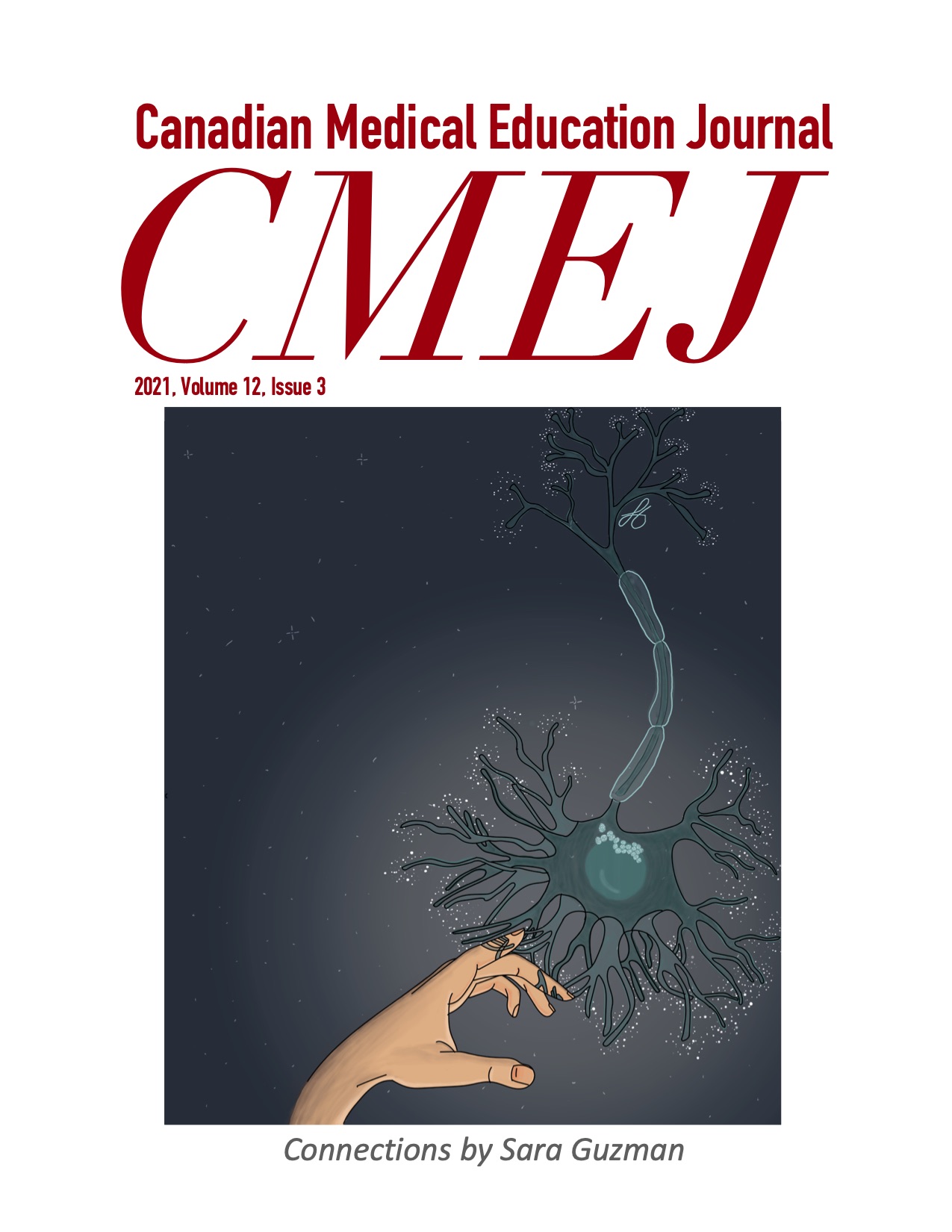Towards competency-based medical education in addictions psychiatry: a systematic review
DOI:
https://doi.org/10.36834/cmej.69739Abstract
Background: Current curriculum guidelines for addiction training in psychiatry need to be adapted to the competency by design framework to integrate clinical skills in addiction.
Objective: We conducted a systematic review to identify curricular and educational interventions to build competency among psychiatry residents and fellows in addiction psychiatry.
Methods: We followed the PRISMA guidelines, searching five databases from inception to August 2020 for relevant evaluation-type studies exploring addiction psychiatry competency among psychiatry residents and fellows. We appraised study quality using the Joanna Briggs Institute's risk of bias tool for observational designs.
Results: From 1600 records, 17 studies met inclusion criteria. Addiction psychiatry competencies spanned themes involving core knowledge development; attitudinal, communication and leadership skills; screening, assessment, diagnosis; management; and special populations. Examples of effective educational interventions to enhance addiction competency include specific modules for substance use disorders and integrated clinical rotations that simultaneously combine multiple types of skills. Lived experience improved trainee attitudes towards addiction psychiatry.
Conclusions: While there is current evidence supporting strategies for developing competency in addiction psychiatry, the lack of studies measuring sustained competence over a longer-term follow-up period and the absence of randomized controlled trials limit the overall strength of evidence in this review. Current psychiatry entrustable professional activities (EPAs) involving addiction only partly overlap with curriculum training guidelines and studies identified in this review. These EPAs need to be better identified for training programs, competence in those EPAs better delineated for residents and preceptors, and evaluations should be done to ensure that adequate competence in addictions is attained and sustained.
Downloads
Published
Issue
Section
License
Copyright (c) 2021 Anees Bahji, Joshua Smith, Marlon Danilewitz, David Crockford, Nady el-Guebaly, Heather Stuart

This work is licensed under a Creative Commons Attribution-NonCommercial-NoDerivatives 4.0 International License.
Submission of an original manuscript to the Canadian Medical Education Journal will be taken to mean that it represents original work not previously published, that it is not being considered elsewhere for publication. If accepted for publication, it will be published online and it will not be published elsewhere in the same form, for commercial purposes, in any language, without the consent of the publisher.
Authors who publish in the Canadian Medical Education Journal agree to release their articles under the Creative Commons Attribution-Noncommercial-No Derivative Works 4.0 Canada Licence. This licence allows anyone to copy and distribute the article for non-commercial purposes provided that appropriate attribution is given. For details of the rights an author grants users of their work, please see the licence summary and the full licence.











